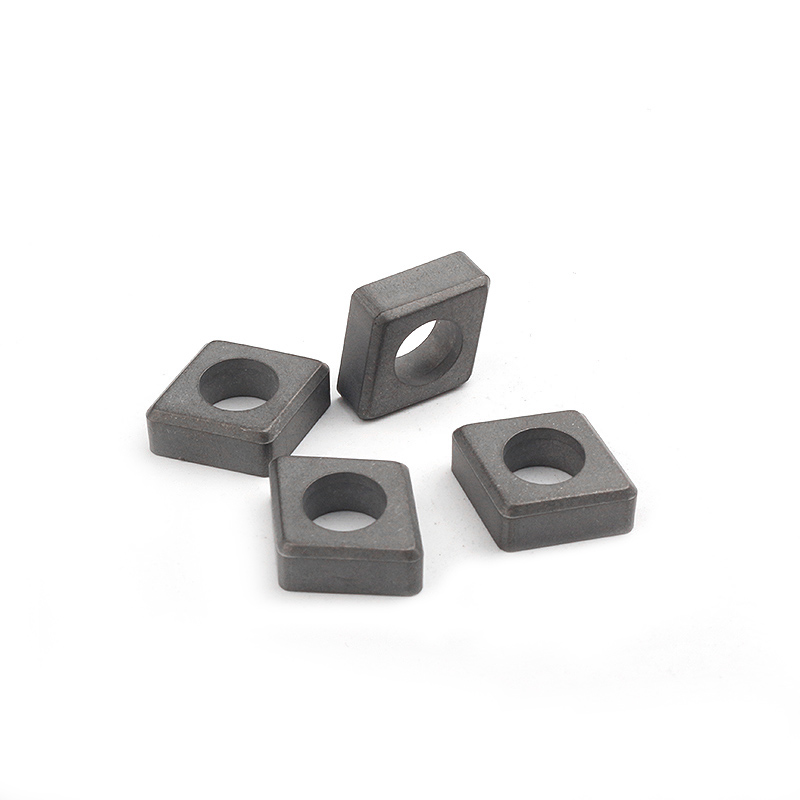2025-06-20
In the highly competitive field of metal machining, the choice of cutting tools plays a crucial role in determining the quality, efficiency, and cost-effectiveness of manufacturing processes. Among the various tooling options available, carbide inserts made from grades YG6 and YG8 have gained widespread recognition for their outstanding toughness and wear resistance. These inserts have become indispensable in machining hard ferrous materials such as cast iron, nodular cast iron, and other challenging alloys, delivering consistent performance even under the demanding conditions.
What Makes YG6 and YG8 Stand Out?
At the heart of their success is the unique composition and manufacturing process of YG6 and YG8 carbide grades. Both grades are primarily tungsten carbide-based, combined with cobalt as a binder, but with subtle differences that tailor them to specific machining needs:
YG6 typically contains around 6% cobalt, providing a balanced combination of hardness and toughness. This makes YG6 especially effective in machining relatively hard cast irons where wear resistance is critical but some degree of impact toughness is necessary.
YG8, with roughly 8% cobalt, offers slightly higher toughness, making it well-suited for tougher applications such as nodular (ductile) cast iron or interrupted cuts where the tool faces higher shock loads.
These characteristics make YG6 and YG8 inserts highly versatile, capable of sustaining long tool life and maintaining sharp cutting edges, which translates to enhanced productivity and improved surface finish in machined components.
Applications Across Industry Sectors
Automotive Manufacturing
Components like engine blocks, cylinder heads, and brake discs are commonly made from various grades of cast iron. Machining these parts demands tools that can withstand abrasive wear and thermal shocks generated during high-speed cutting. YG6 and YG8 carbide inserts ensure precise dimensional accuracy and smooth surface finishes, critical for the performance and reliability of automotive engines.

Heavy Equipment and Construction Machinery
The rugged nature of construction and mining equipment necessitates parts made from nodular cast iron, prized for its strength and impact resistance. YG8 inserts, in particular, excel at machining these ferrous materials, enabling manufacturers to produce components that meet stringent mechanical requirements while maintaining efficient machining cycles.
Industrial Valve and Pump Manufacturing
Valves and pumps often use cast iron housings and components that require intricate machining. Carbide inserts from the YG series deliver consistent cutting action, reducing tool changes and downtime—key factors in high-volume production settings.
General Engineering and Tooling
Beyond specific sectors, general engineering workshops rely on YG6 and YG8 inserts for various cutting operations including turning, grooving, and threading of ferrous metals. Their robust wear resistance ensures cost-effectiveness by prolonging insert life and reducing the frequency of replacements.
Performance Benefits Driving Industry Adoption
Enhanced Wear Resistance
Tungsten carbide’s inherent hardness, combined with the cobalt binder, grants YG6 and YG8 inserts resistance to abrasive wear caused by hard inclusions in cast iron. This means fewer tool failures and sustained sharpness over extended production runs.
Toughness
The balance of hardness and toughness in these grades helps absorb shocks from interrupted cuts or variations in workpiece hardness. This toughness reduces chipping and cracking of the insert edges, resulting in smoother operations and fewer surface defects.
Thermal Stability
Machining ferrous materials generates significant heat. The YG series inserts maintain their hardness at elevated temperatures, allowing for higher cutting speeds without sacrificing tool life. This thermal stability enables manufacturers to optimize machining parameters for increased throughput.
Cost Efficiency
Longer tool life and reduced downtime contribute to overall cost savings. Furthermore, the reliability of YG6 and YG8 inserts helps minimize scrap rates by maintaining consistent cutting performance, enhancing yield and product quality.